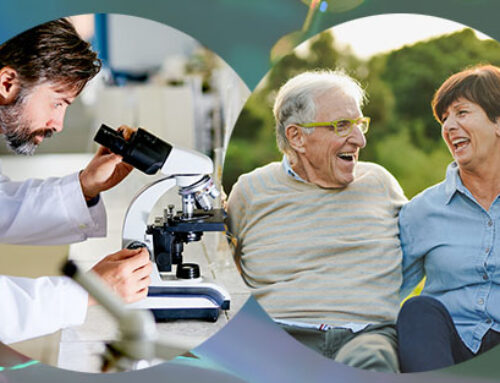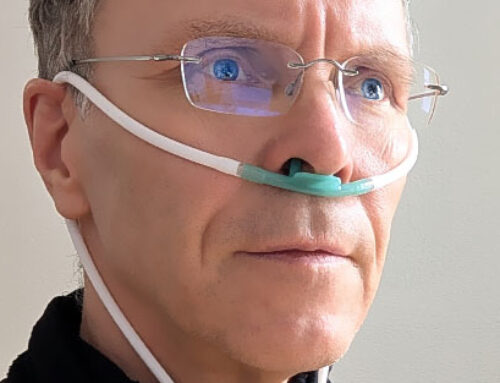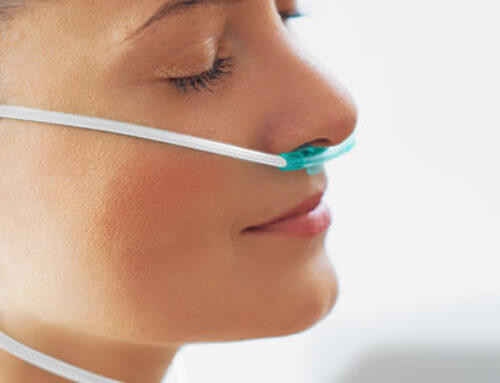Program and Abstracts
A total of 46 scientific presentations are being delivered – including keynotes, invited lectures, special talks, posters, and company presentations.
Main Topics
- Medical Applications and Clinical Research
- Evidence of the antioxidant, anti-inflammatory, and cell-protective effects of H2.
- Applications in cardiovascular diseases, dialysis, Alzheimer’s, stroke, cancer, sepsis, and diabetes.
- Studies show improvements in blood pressure, vascular function, metabolism, and immune regulation.
- Clinical studies include hydrogen inhalation after cardiac arrest (Prof. Motoaki Sano, Japan) and combination with immunotherapy in cancer patients (Dr. Junji Akagi, Japan).
- Neuroscience
- H2 protects nerve cells from oxidative stress and suppresses inflammatory responses in the brain.
- Positive results in Alzheimer’s, Parkinson’s, and age-related cognitive decline (Prof. Shigeo Ohta, Japan; Prof. Ikuroh Ohsawa, Japan).
- Sports Medicine and Recovery
- Molecular hydrogen accelerates recovery after physical exertion, reduces muscle damage, and prevents chronic fatigue.
- Applications for athletes and in rehabilitation, including post-COVID patients (Prof. Michal Botek, Czech Republic).
- Hydrogen Agriculture
- Hydrogen as a new agricultural aid to promote plant growth, yield, shelf life, and stress resistance.
- Contribution to sustainable agriculture through reduced pesticide use (Prof. Wenbiao Shen, China).
- Materials Science and Technology
- Development of “Hydrogen Medicine Materials” – innovative biomaterials that release hydrogen in the body in a targeted way (Prof. Qianjun He, China).
- New storage materials and magnesium alloys for medical and industrial use (Prof. Wenjiang Ding, China).
- Ethics, Safety, and the Future of Hydrogen Medicine
- Discussion of safety standards, ethical aspects of clinical research, and international cooperation.
- Presentations by industry partners and technology developers on hydrogen devices for inhalation, drinking water, and therapeutic use.
Special Program Highlights
- Keynote Lectures by leading researchers such as Shigeo Ohta, Motoaki Sano, Wenbiao Shen, and Qianjun He
- Poster Session featuring current projects by young scientists
- Industry Exhibition showcasing practical hydrogen applications
- Closing Banquet at Hotel Tokyo Garden Palace
Conference Topics: Hydrogen Application and Research
In his opening remarks, Prof. Shigeo Ohta emphasized that since the discovery of the therapeutic effects of molecular hydrogen 18 years ago, enormous progress has been made. Research has shown that hydrogen—contrary to earlier assumptions—has diverse and profound health benefits, with excellent safety and virtually no side effects.
Today, studies go far beyond classical medicine and also include sports medicine, agriculture, and beauty sciences. The aim of the conference is to translate scientific knowledge about hydrogen into practical applications.
With 46 scientific contributions from 28 countries, the conference highlights the increasing internationalization of hydrogen research. Particularly encouraging is the strong participation of young scientists who bring creativity and passion to the field, setting new impulses.
Prof. Ohta also expressed his gratitude to the industrial partners whose support strengthens the link between research and application. Overall, the three-day conference offers an inspiring, interdisciplinary program and promotes international exchange—both scientifically and personally.
Shigeo Ohta is the Conference Chair of the International Conference on Hydrogen Medicine and Biology 2025, Tokyo.
Molecular Hydrogen – Medicine of the Future: Insights from the Hydrogen Medicine & Biology Conference 2025 in Tokyo
This year, Tokyo was the center of a growing medical movement: the International Conference on Hydrogen Medicine & Biology 2025. Researchers and physicians from 28 countries gathered to discuss the latest findings on a topic that is attracting increasing attention – molecular hydrogen (H2) as a therapeutic agent, protective factor, and aid to regeneration.
Under the theme “Science creates Practice, Practice shines Science”, leading scientists demonstrated how hydrogen is making its way from basic research into clinical application. The results are impressive: H2 acts antioxidatively, anti-inflammatorily, cell-protectively, and metabolically regulatory – with outstanding tolerability.
Broad Range of Medical Applications
Special focus was placed on cardiovascular diseases. Professor Motoaki Sano (Yamaguchi University) presented clinical studies showing that hydrogen gas inhalation after cardiac arrest significantly improved survival rates and neurological recovery. H2 also showed clear benefits in cases of hypertension, kidney disease, and dialysis patients. In the newly developed Dual Hydrogen Dialysis method, both H2-enriched dialysis water and hydrogen inhalation are used – a procedure that measurably reduces inflammation and oxidative stress.
Neuroscience also benefits from these findings: hydrogen provides protection in Alzheimer’s, stroke, and Parkinson’s disease by neutralizing harmful free radicals and improving mitochondrial function. Encouraging results were also presented in oncology – particularly through the combination of immunotherapy and hydrogen inhalation in patients with advanced cancer.
Cancer Treatment: In combination with immunotherapy, hydrogen inhalation (AIIM method by Dr. Junji Akagi) showed improved tolerability and quality of life in stage IV cancer patients.
In addition, researchers reported positive effects on lung diseases and inflammation, sepsis, diabetes, and the metabolic syndrome. Hydrogen can reduce inflammatory responses, improve vascular function, and stabilize energy metabolism – all factors that contribute to the prevention of chronic diseases. Hydrogen has proven to be a protective factor in sepsis, pneumonia, and age-related inflammatory processes due to its anti-inflammatory properties.
Metabolic Syndrome and Diabetes: Studies indicated normalization of lipid metabolism, improved insulin sensitivity, and reduced inflammatory markers.
Regeneration, Sports, and Quality of Life
Another focus was on sports medicine. Professor Michal Botek (Palacký University, Czech Republic) presented studies showing that hydrogen-rich water and H2 inhalation can accelerate recovery after intensive training, reduce muscle damage, and prevent chronic fatigue. Patients suffering from rheumatism or post-COVID symptoms also benefited through faster recovery and increased vitality.
From Medicine to Agriculture
The applications of hydrogen extend surprisingly far beyond medicine. Professor Wenbiao Shen (Nanjing Agricultural University) presented the emerging discipline of “Hydrogen Agriculture”: plants grown with H2-enriched water become more resilient, healthier, and yield higher crops – with reduced use of pesticides and fertilizers. Even the shelf life of fruits and vegetables can be measurably extended.
Materials Science as a Key to Precision
New “Hydrogen Medicine Materials” could be crucial for the future – specialized biomaterials that release hydrogen in the body in a targeted manner. Professor Qianjun He (Shanghai Jiao Tong University) demonstrated how such materials can enhance the effectiveness of therapies against cancer, inflammation, and degenerative diseases.
Selected speakers and their key topics
Prof. Shigeo Ohta (Japan)
– Discoverer of the medical effects of molecular hydrogen, considered the founder of hydrogen medicine.
– Lecture: “Initiation, Development and Future Mission of Hydrogen Medicine and Biology”
– Topics: basic research, antioxidant mechanisms, signal transduction, applications in Alzheimer’s disease, metabolic syndrome, and general health prevention.
Prof. Motoaki Sano (Yamaguchi University, Japan)
– Focus: Cardiology and Nephrology.
– Lecture: “Pharmacological effects of hydrogen and its effectiveness in disease treatment”
– Research on hydrogen inhalation in cardiac arrest, myocardial infarction, hypertension, and kidney failure.
– Development of “Dual Hydrogen Dialysis” to reduce oxidative stress and inflammation in dialysis patients.
Prof. Wenbiao Shen (Nanjing Agricultural University, China)
– Pioneer of “Hydrogen Agriculture”.
– Lecture: “Emerging Hydrogen Agriculture in China”
– Research on the effects of hydrogen on plant growth, stress resistance, yield, and food shelf life.
– Application for sustainable agriculture with reduced pesticide and fertilizer use.
Prof. Michal Botek (Palacký University, Czech Republic)
– Sports physiologist and H2 researcher in the field of regeneration and performance.
– Lecture: “Molecular Hydrogen: A Promising Molecule in Sports Science and Health Promotion”
– Evidence that hydrogen reduces fatigue, muscle damage, and overtraining, enhances recovery and performance, including in rheumatism and post-COVID patients.
Prof. Qianjun He (Shanghai Jiao Tong University, China)
– Materials scientist and Head of the Center of Hydrogen Science.
– Lecture: “Hydrogen Medicine Materials”
– Development of novel H2-releasing biomaterials for targeted therapy of inflammation, cancer, and degenerative diseases.
– Research on molecular targets, hydrogen detection, and nanomaterials.
Prof. Wenjiang Ding (Shanghai Jiao Tong University, China)
– Lecture: “Magnesium of lightweight and hydrogen – Cultivation of innovation and invention”
– Combination of light metal research, energy, and hydrogen medicine.
– Development of magnesium-based hydrogen storage materials for medical, energy, and agricultural applications.
Dr. Junji Akagi (AIIM Clinics, Japan)
– Lecture: “Immunotherapy combined with hydrogen gas inhalation for stage IV cancer patients”
– Application of hydrogen inhalation as adjuvant therapy in oncology.
– Improvement of immune response, tolerability, and quality of life in advanced cancer patients.
Dr. Keiliang Xie (Tianjin Medical University, China)
– Lecture: “Basic and clinical research on hydrogen therapy for sepsis”
– Research on H2 inhalation in sepsis, pneumonia, and organ failure, focusing on anti-inflammatory and cell-protective effects.
Dr. John W. Kheir (Harvard Medical School, USA)
– Lecture: “HydrogenFAST Trial – Feasibility and Safety of Hydrogen Therapy in Extracorporeal Cardiopulmonary Resuscitation”
– Investigation of safety and efficacy of hydrogen gas in resuscitation and intensive care.
Prof. Ikuroh Ohsawa (Tokyo Metropolitan Institute of Gerontology, Japan)
– Lecture: “Anti-inflammatory effects of H2-rich water and H2 gas inhalation”
– Research on the anti-inflammatory effects of hydrogen in stroke, cerebral hemorrhage, and age-related inflammation.
Tyler W. LeBaron (Southern Utah University / Molecular Hydrogen Institute, USA)
– Lecture: “Optimizing Therapeutic Hydrogen Inhalation: Dosage and Clinical Considerations”
– Internationally recognized H2 researcher and science communicator.
– Focus on dosage, inhaled concentration (FiH2), and physiological uptake of hydrogen gas.
Photo EXECUTOR public domain https://commons.wikimedia.org/w/index.php?curid=15878603










